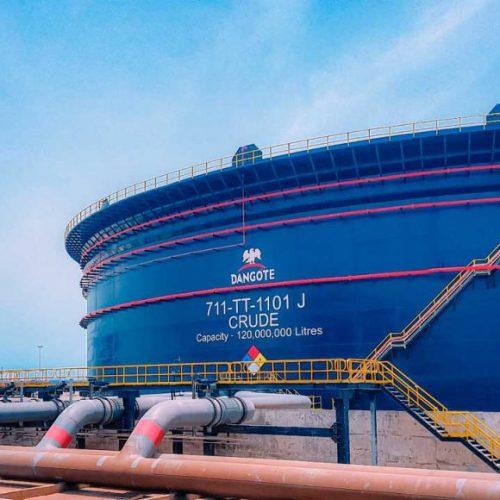The Auto-gas value chain is poised to experience increased activity following President Bola Ahmed Tinubu’s decision to remove fuel subsidies.
It is crucial, therefore, to explore the different avenues through which Nigerians and other investors can engage in this sub-sector and address the country’s energy demands.
During a webinar organized by the Nigeria Liquefied Petroleum Gas Association (NLPGA) on July 13, Engr. Busayo Fabunmi, the General Manager of Operations at Gas Terminaling and Distribution Limited, outlined nine key areas within the auto-gas value chain that are ripe for investment in Nigeria.
According to Fabunmi, given the substantial financial burden associated with conventional fuel/petrol, Nigerians will increasingly seek out alternative energy sources, with auto-gas emerging as a favourable option in the long run.
The conversion cost for petrol vehicles is between N300,000 to N400,000 and tricycle conversion cost N100,000 to N200,000.
During his presentation at the webinar, Engr. Fabunmi shared opportunities in the auto-gas value chain that can contribute to Nigeria’s economic development.
The nine opportunities he shared include:
- Suppliers/Manufacturers of kits, tanks and cylinders – These people ensure that increased demand for auto-gas is met by providing the necessary conversion kits and other accessories needed to convert internal combustion engines of cars and generators to auto-gas. They can set up local manufacturing plants to meet demand.
- Marketers – This aspect of the market focuses only on ensuring that Nigerians are aware of the advantages of switching to auto-gas for their cars and generators. This is done by creating a buzz through social media to stimulate demand.
- Spares sellers – According to Mr. Fabunmi, spare sellers are needed because as demand for auto-gas grows, people will need to change vehicle parts after conversion. They buy spares from original equipment manufacturers (OEMs) and sell them to those who do maintenance of vehicles post-conversion.
- Financing (capital upfront) – The people in this space can supply the capital needed to stimulate demand and supply in the auto-gas value chain. They invest in the sub-sector and make returns when the sub-sector is fully activated.
- Retrofitting (technical skills) – Those in this area will be trained technicians that have the skill to retrofit cars to run on auto-gas. They run conversion centres across the country, for this purpose
- Dispensing (refuelling stations) – Some Nigerians are already gearing up to sell auto-gas and other natural gas variants to consumers who will be making the switch or have already done so. These operators are co-locating their auto-gas dispensing services alongside their already established fuel dispensing business.
- Maintenance (calibration and servicing) – They are at the core of the value chain and can provide support and maintenance services for vehicles that have been converted to run on gas. They can fine-tune engines post-conversion and recalibrate and replace conversion kits.
- Trainers – These are people who have practical knowledge of how the conversion processes work and will be training the technicians on skill improvements because they are the ones who will carry out conversions for vehicles and maintain the vehicles for users.
- Supply and storage – Those involved in supply and storage are experts at logistics and their work involves movement of auto-gas from depots or points of production to the points of sale. They can also decide to store auto-gas prior to when supply is needed.
What you should know
The president’s special adviser on energy, Ms Olu Verheijen, recently said that the Tinubu administration will prioritize gas development for domestic use.

Prior to this time, the country has already instituted the National Gas Expansion Programme (NGEP) which is focused on the use of various forms of natural gas (liquefied natural gas, liquefied petroleum gas, compressed natural gas, etc) to meet energy demands in the country.















